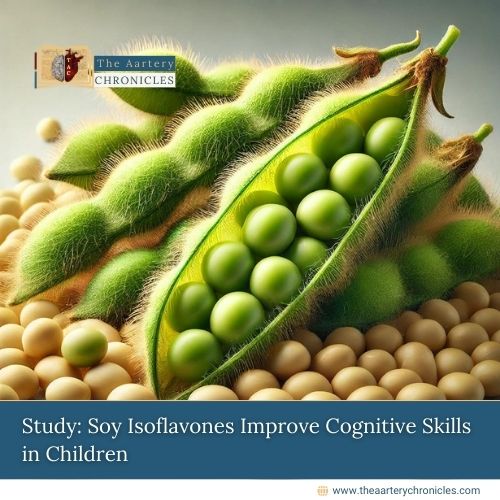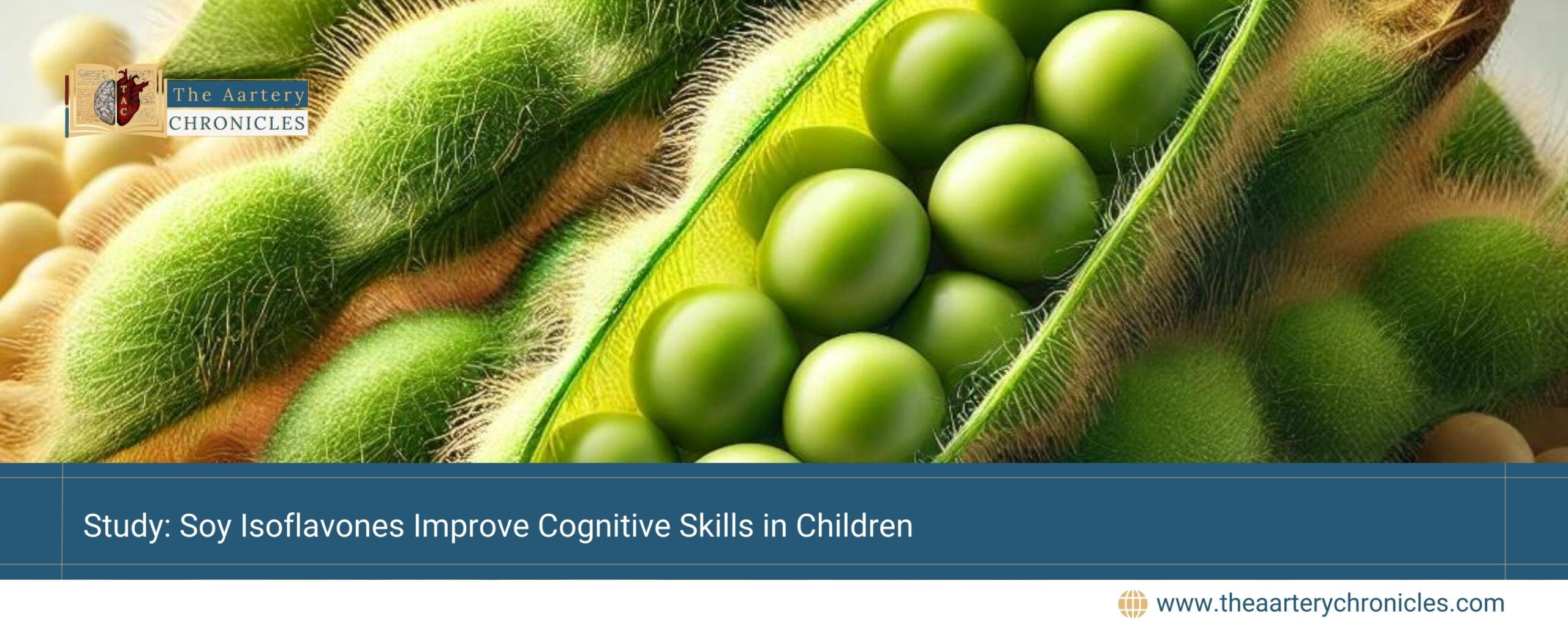

Study Highlights Cognitive Benefits of Soy Isoflavones in Children
A recent study has found that school-aged children who consumed higher amounts of isoflavones from soy foods displayed improved cognitive abilities, particularly in attention and thinking skills. These findings open the door for future research on how soy foods may benefit childhood cognitive development.
What Are Isoflavones?
Isoflavones are natural compounds derived from plants, primarily found in soy products. These compounds belong to a group called phytoestrogens, meaning they can mimic estrogen, a hormone produced in the human body, but with significantly weaker effects.
How Isoflavones Work?
Isoflavones can imitate estrogen, though they are far less potent. This estrogen-like action means they can interact with estrogen receptors in the body, though their effects are milder compared to the body’s natural hormones.
Health Benefits of Isoflavones
Apart from mimicking estrogen, isoflavones are also known for their powerful antioxidant properties.
- These antioxidants help neutralize harmful free radicals in the body, potentially offering protective health benefits.
- However, ongoing research is still investigating the full range of their physiological effects.
Sources of Isoflavones
Soybeans and soy-based foods, like soy flour and soy nuts, are some of the richest sources of isoflavones. These foods provide high concentrations of the compound, making them a key part of many diets aimed at harnessing the health benefits of isoflavones.
Soy Isoflavones and Cognitive Abilities in Children
Although past research has suggested soy isoflavones can enhance memory in adults, studies on children have been limited. “Soy foods are often not a regular part of children’s diets in the U.S.,” said Ajla Bristina, a doctoral student in neuroscience at the University of Illinois Urbana-Champaign. She emphasized that their study highlights the importance of soy nutrients for childhood cognition.
Study Design and Methodology
The study analyzed data from 128 children, ages 7 to 13, using dietary records to estimate their intake of nutrients, including isoflavones.
Researchers assessed the children’s intellectual abilities with
- Pencil-and-paper tests and used the flanker task, a computerized tool, to measure attentional abilities.
- Electroencephalographic (EEG) activity was recorded to evaluate brain processing speed and attention.
Key Findings
- Though the children consumed low levels of soy foods on average, those with higher soy intake demonstrated faster responses during attention tasks and quicker processing speeds.
- No significant link was found between isoflavone intake and overall intellectual ability.
“The average intake was 1.33 mg of isoflavones per day, aligning with typical values in the U.S.,” Bristina noted.
- Foods like soy milk, tofu, and edamame offer substantial amounts of isoflavones, with servings providing anywhere from 18 to 35 mg of isoflavones.
The Future of Isoflavone Research
Bristina highlighted that while this correlational study is a first step, intervention studies are needed to better understand the precise effects of soy foods on children’s cognition. The research team has already initiated a clinical trial to explore the impact of soy foods on thinking abilities, hormone levels, metabolic health, and gut health in children.
Wrapping Up
The study concludes that higher consumption of soy isoflavones in school-aged children is associated with improved cognitive performance, particularly in attention and processing speed. These findings suggest that including soy foods in children’s diets may have potential cognitive benefits, though further intervention studies are needed to establish a direct causal relationship.
Bristina A. Effects of Soy Isoflavones on Children's Cognitive Abilities. Presentation at NUTRITION 2024, American Society for Nutrition Annual Meeting, June 29–July 2, 2024, Chicago.
- Various media sources









